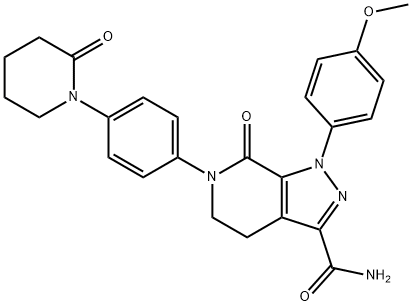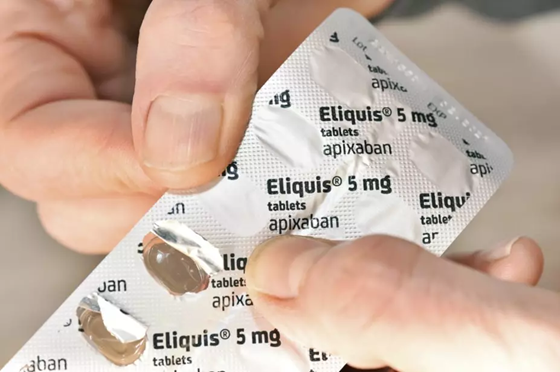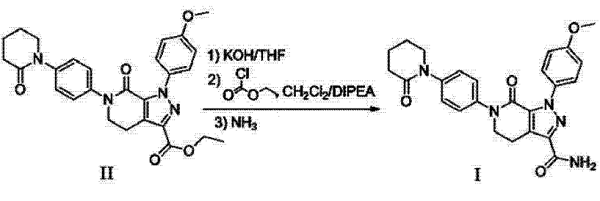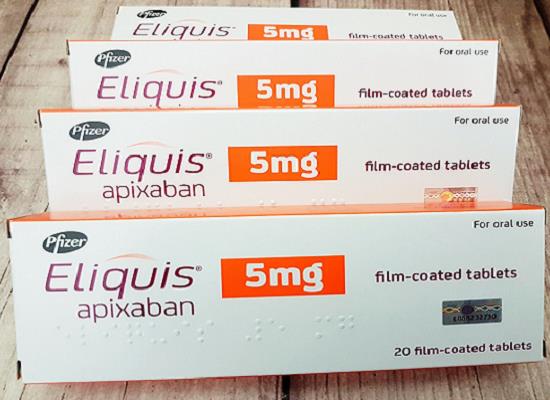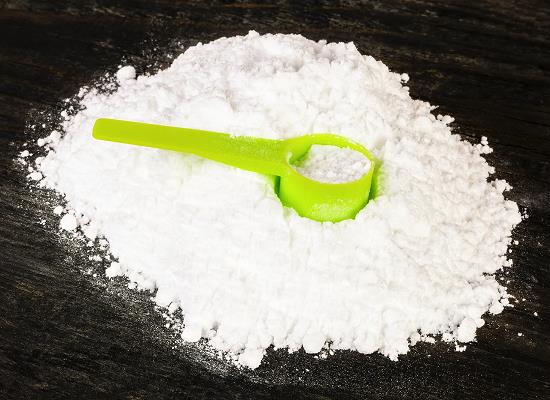Apixaban: drug interactions and therapeutic efficacy
General Description
Apixaban is an anticoagulant medication used to prevent blood clots. When used with other agents that affect haemostasis, there is an increased risk of bleeding. It should not be coadministered with NSAIDs, antiplatelet agents, or other anticoagulants. Apixaban is metabolized by CYP3A4 and P-gp, so caution should be exercised when used with inhibitors or inducers of these enzymes. In terms of therapeutic efficacy, apixaban has been shown to be effective in the treatment of acute venous thromboembolism, with fewer risks of major bleeding compared to traditional treatments. It is also effective in the long-term prevention of recurrent VTE, significantly reducing the risk of recurrence or death. Apixaban at a dosage of 2.5 mg twice daily has shown consistent efficacy across various subgroups and a lower risk of all-cause hospitalizations. Overall, apixaban is a valuable medication for VTE management.
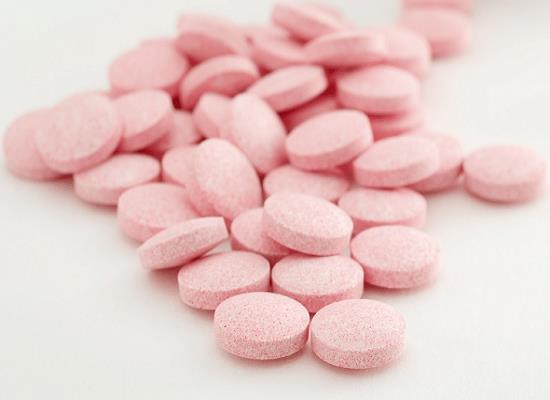
Figure 1. Tablets of apixaban
Drug interactions
Apixaban is an anticoagulant medication used to prevent blood clots. However, concomitant use of apixaban with other agents that affect haemostasis is associated with an increased risk of bleeding. Therefore, caution should be exercised during coadministration of apixaban with NSAIDs, including aspirin, and drugs that are associated with serious bleeding (e.g. thrombolytics, glycoprotein IIb/IIIa receptor antagonists, theinopyridines, dipyridamole, dextran or sulfinpyrazone). Concomitant use of apixaban with other anticoagulants, antiplatelet agents, and NSAIDs is contraindicated. Apixaban is a substrate of both CYP3A4 and P-gp, and coadministration with strong dual inhibitors of CYP3A4 and P-gp increases apixaban exposure and the risk of bleeding. Therefore, it is not recommended in the EU. Coadministration of apixaban with less potent CYP3A4 and/or P-gp inhibitors may also increase apixaban exposure, although dosage adjustments are not required. Concomitant use of apixaban with strong dual inducers of CYP3A4 and P-gp may decrease apixaban exposure by &50 % and cause reduced efficacy, and coadministration of apixaban with these drugs should therefore be avoided. Based on in vitro studies, apixaban is not a significant P-gp inhibitor and is not expected to affect the metabolism of coadministered drugs that are substrates of various enzymes. In healthy volunteers, the pharmacokinetic properties of apixaban were not altered to a clinically relevant extent by several coadministered drugs. Activated charcoal may be useful in the management of apixaban overdose or accidental ingestion. 1
Therapeutic efficacy
Treatment of acute venous thromboembolism
Apixaban is a drug used for the treatment of acute venous thromboembolism (VTE). In a study called AMPLIFY, adults with acute VTE were treated with either oral apixaban alone or subcutaneous enoxaparin overlapped with and followed by oral warfarin. The primary efficacy endpoint was the incidence of recurrent, symptomatic VTE or VTE-related death. Once noninferiority was established, superiority analysis was conducted in a predetermined hierarchical sequence. At baseline, most patients presented with unprovoked VTE. The study found that apixaban was noninferior to enoxaparin/warfarin in the treatment of adults with acute VTE with regard to the incidence of recurrent, symptomatic VTE or VTE-related death over 6 months. In terms of recurrent VTE or VTE-related death, the efficacy of apixaban versus enoxaparin/warfarin remained consistent among patients with baseline deep vein thrombosis or pulmonary embolism. Compared with enoxaparin/warfarin, the efficacy of apixaban also remained consistent across various other subgroups, including those relating to age, sex, bodyweight, renal function, extent of the index VTE event and previous parenteral anticoagulant use. In the enoxaparin/warfarin group, the relative risk of VTE or VTE-related death remained consistent across subgroups defined by quartiles of time within the therapeutic international normalized ratio range. The study also found that the relative risk of the composite endpoint of recurrent VTE, VTE-related death or major bleeding was significantly reduced by 38% with apixaban versus enoxaparin/warfarin. Overall, the study showed that apixaban is an effective treatment for acute VTE, with fewer risks of major bleeding compared to enoxaparin/warfarin. 2
Long-term prevention of recurrent venous thromboembolism
Apixaban, an oral anticoagulant, has been studied for its efficacy in the long-term prevention of recurrent venous thromboembolism (VTE). In the AMPLIFY-EXT trial, adults who had completed 6-12 months' treatment for acute VTE were compared with placebo. The trial included two dosages of apixaban: 5 mg twice daily and 2.5 mg twice daily. The primary efficacy endpoint was the composite incidence of symptomatic, recurrent VTE, or death from any cause. Both dosages of apixaban were significantly more effective than placebo in preventing recurrent VTE or death over 12 months. Apixaban 2.5 mg twice daily reduced the risk by 67%, while apixaban 5 mg twice daily reduced it by 64%. The relative risk of recurrent VTE or VTE-related death was also significantly reduced by 81% with apixaban 2.5 mg twice daily and by 80% with apixaban 5 mg twice daily compared to placebo. The efficacy of both dosages remained consistent across various subgroups. Apixaban 2.5 mg twice daily was associated with a 79% reduction in the relative risk of recurrent VTE, VTE-related death, myocardial infarction, stroke, or cardiovascular disease-related death compared to placebo. In terms of net clinical benefit, apixaban 2.5 mg twice daily reduced the relative risk of recurrent VTE, VTE-related death, MI, stroke, CVD-related death, or major bleeding by 77% compared to placebo. During the 30-day follow-up period after the end of treatment, apixaban showed a lower risk of recurrent VTE and composite cardiovascular events compared to placebo. Furthermore, apixaban 2.5 mg twice daily reduced the risk of all-cause hospitalizations by 36% compared to placebo. Overall, these findings suggest that apixaban, particularly at the dosage of 2.5 mg twice daily, is effective in preventing recurrent VTE and associated complications in patients who have completed initial treatment for acute VTE. 3
Reference
1. Greig SL, Garnock-Jones KP. Apixaban: A Review in Venous Thromboembolism. Drugs. 2016 Oct;76(15):1493-1504.
2. Agnelli G, Buller HR, Cohen A, Curto M, Gallus AS, Johnson M, Masiukiewicz U, Pak R, Thompson J, Raskob GE, Weitz JI; AMPLIFY Investigators. Oral apixaban for the treatment of acute venous thromboembolism. N Engl J Med. 2013 Aug 29;369(9):799-808.
3. Agnelli G, Buller HR, Cohen A, Curto M, Gallus AS, Johnson M, Porcari A, Raskob GE, Weitz JI; AMPLIFY-EXT Investigators. Apixaban for extended treatment of venous thromboembolism. N Engl J Med. 2013 Feb 21;368(8):699-708.
You may like
Related articles And Qustion
See also
Lastest Price from Apixaban manufacturers

US $5.00-0.50/KG2025-05-30
- CAS:
- 503612-47-3
- Min. Order:
- 1KG
- Purity:
- 99% hplc
- Supply Ability:
- 500TONS

US $0.00/KG2025-04-21
- CAS:
- 503612-47-3
- Min. Order:
- 10g
- Purity:
- 98%-102% HPLC
- Supply Ability:
- 10kg
